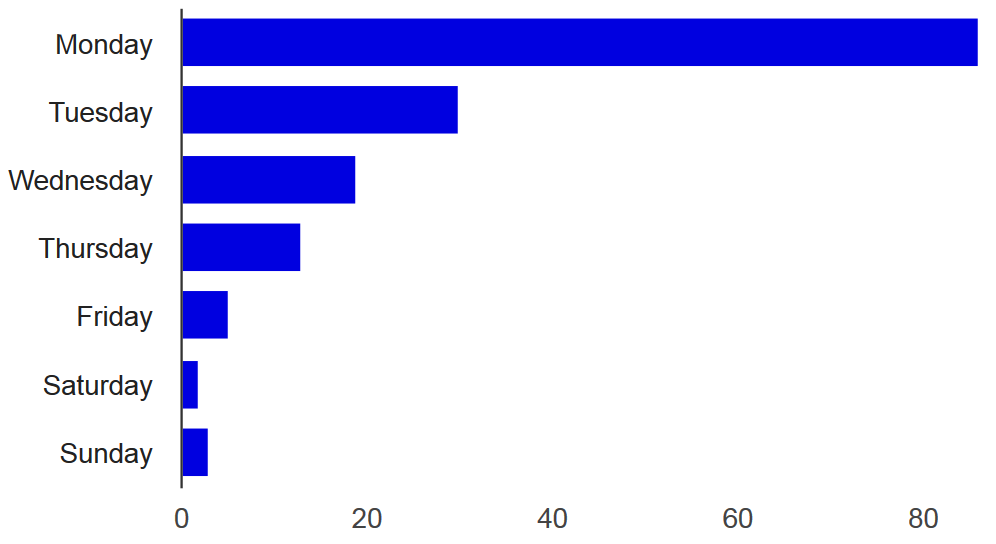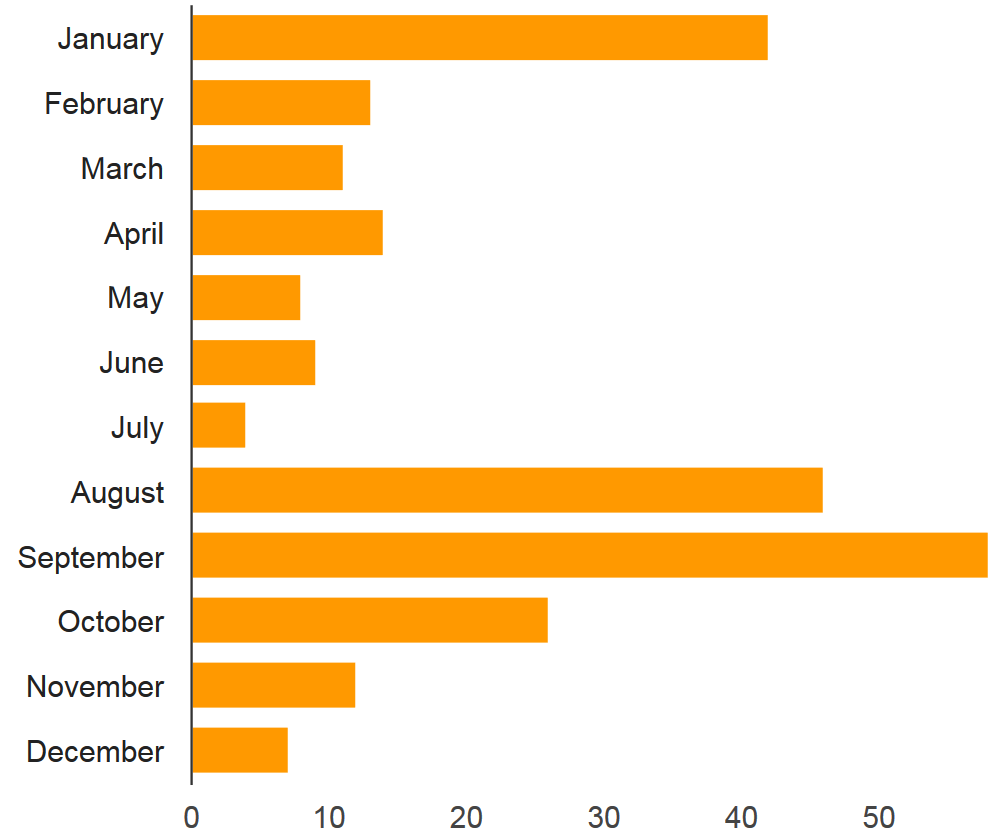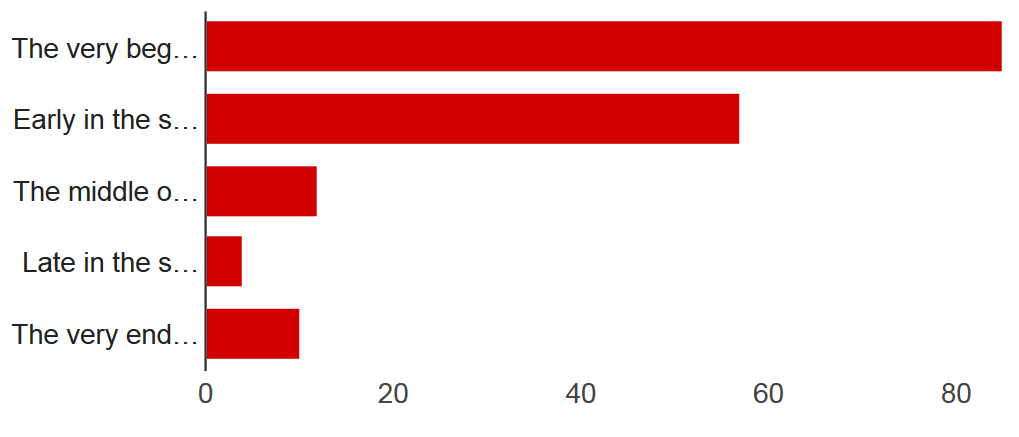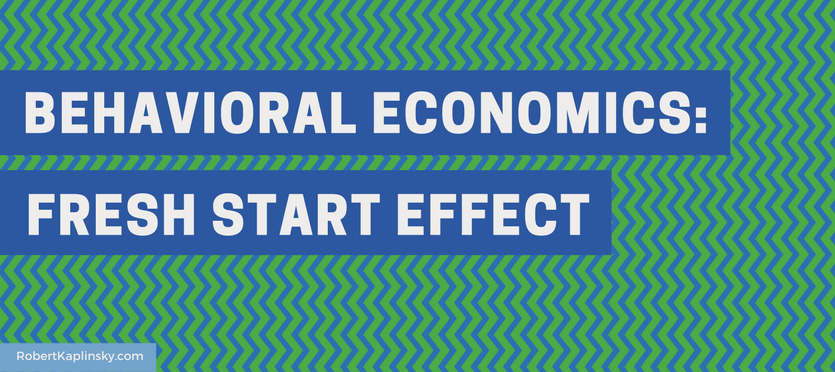NOTE: This is one of a series of ten blog posts on cognitive biases that have applications in education.
Some times are better than others in terms of people being mentally prepared to begin something new. Eating healthier, going to the gym, or quitting smoking… are they more likely to successfully begin on a Friday night or a Monday morning? In these three examples, better times for a fresh start are not hard to guess: New Year’s Day, the first day of a month, the first day of the week, birthdays, or mornings. Similarly, worse times for a fresh start are not hard to guess: holidays (begin a healthy eating on Halloween or Thanksgiving? Yeah right.), Fridays, after your baby is born, the middle of the week, or evenings. Occasionally, the best laid plans fail because they don’t begin at the right time.
I asked teachers on Twitter to tell me when their best times for starting a new initiative in their class/school are. Teachers had the option of selecting more than one response. Here is what they said:


- The very beginning of the semester/quarter
- Early in the semester/quarter
- The middle of the semester/quarter
- Late in the semester/quarter
- The very end of the semester/quarter

I imagine that looking at the graphs, the results are not very surprising to you. It is worth noting that each choice received at least a few votes. So, that may imply that some people’s preferred times are when your least preferred times are.
In response to this survey, several people on Twitter had some concerns including:
@robertkaplinsky you might want to ask whether they’re elementary or high school teachers, and what country they’re in
— David Butler (@DavidKButlerUoA) September 7, 2015
@robertkaplinsky @rilesblue these Qs depend-ie when you actually start or when you begin to plan for initiative -staff need prep in adv 1/2 — Melinda Lula (@m_lula) September 7, 2015
@robertkaplinsky @rilesblue for example -would want to prep my Ts in June for new initiative in sept 2/2
— Melinda Lula (@m_lula) September 7, 2015
Obviously, both David and Melinda are totally right. So, to be clear, my intention is not to imply that the responses to my survey should represent what all teachers think. Instead, my intention is to show that there are patterns in the data and that it would be very worthwhile to have similar conversations with your colleagues so that you can find out what preferences you each have and take them into consideration.
While their desire to improve may be misguided, it may be a worthwhile opportunity to instill the notion of a fresh start and begin working on more productive work habits. Additionally, consider the possibility of providing new fresh start dates at non-traditional times. Students may only perceive fresh starts to be at the beginning of the year or semester and may not want to renew their efforts at other times. Is there a chance that the creation of additional fresh start opportunities in your classroom could encourage a student to try a little harder?
How else can we use the Fresh Start Effect to our advantage in education?

